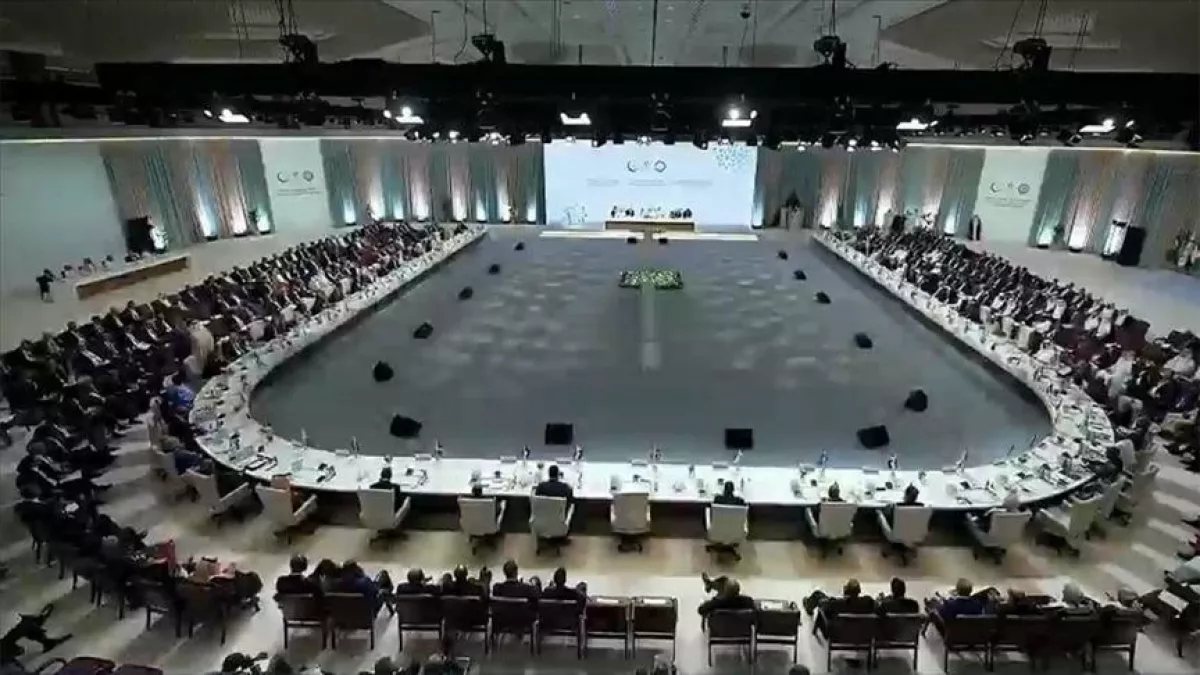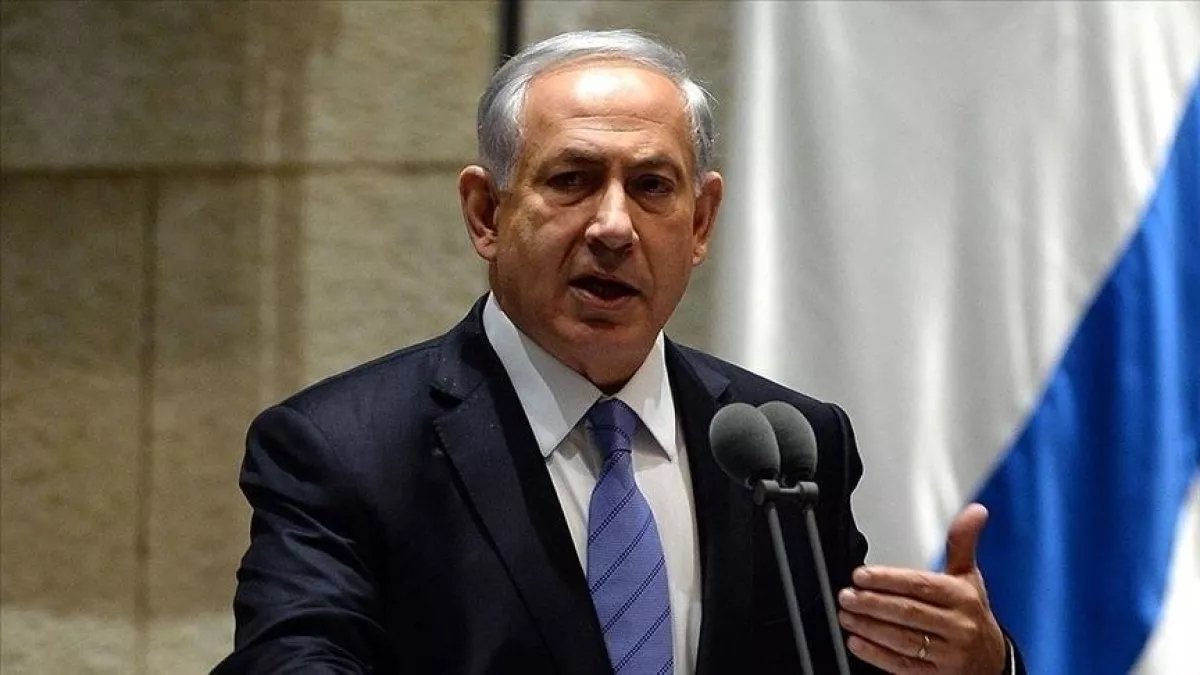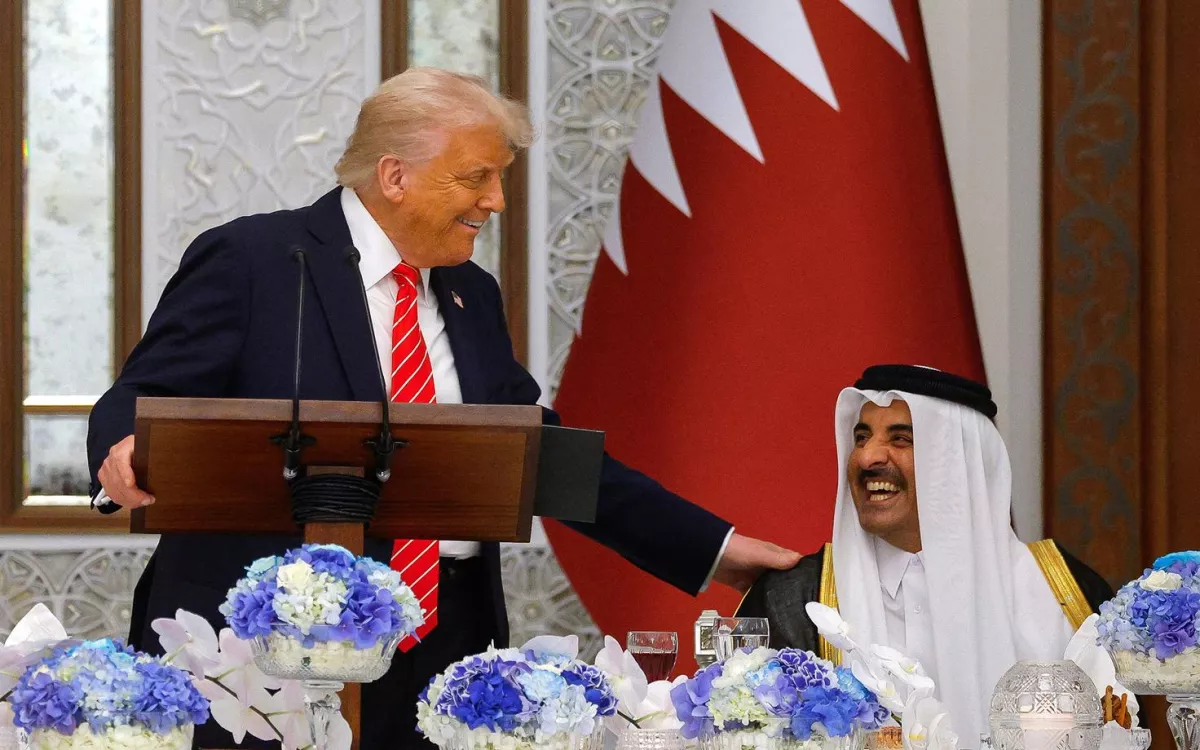Israel, Qatar, and the regional normalisation crisis Alliances under pressure
On September 15 in Doha, leaders of Islamic countries discussed measures to support Qatar following an Israeli strike on the capital.

During the raid, the Israeli Air Force targeted a villa where the leadership of the Palestinian organisation Hamas was reportedly meeting. Leaders of Islamic states warned that Israel’s attack on Qatar and other “hostile actions” threaten coexistence and efforts to normalise relations in the region.
The September 9 attack, which Hamas said killed five of its members—but spared its leadership—prompted Gulf Arab states, U.S. allies, to rally in response, further straining relations between the United Arab Emirates and Israel, which normalised ties in 2020.
Meanwhile, Israeli Prime Minister Benjamin Netanyahu continues to pressure Middle Eastern states, warning that they must either expel Hamas officials or hold them accountable, because, “if you do not do it, we will.” Hamas representatives are present in several Middle Eastern countries, including Qatar, where Netanyahu’s words were received as new threats.

On September 13, Netanyahu also stated that removing Hamas leaders residing in Qatar would eliminate the main obstacle to the release of Israeli hostages still held by the group in Gaza and to ending the war.
For its part, Qatar, a key mediator in the Gaza conflict, accused Israel of sabotaging the chances for peace. Among those killed was a member of Qatar’s internal security forces. Qatari Prime Minister Sheikh Mohammed bin Abdulrahman Al-Thani stated that Israel’s actions will not stop Doha’s mediation efforts in negotiations with Egypt and the U.S., aimed at ending the war in Gaza.
Türkiye, Qatar’s closest military, political, and economic ally, also issued several statements criticising Israel.
According to assessments circulated in the expert community, discontent is growing in the region.
First, the Gulf Arab states are financial and oil giants, interested in attracting investments and restructuring their economies in preparation for the post-oil era. And as is well known, money prefers silence. For large financial flows and new technologies to arrive reliably, these states need to minimise risks associated with military actions.
Second, the Arab countries have already become concerned—after Israel’s strike on Iran—about Israel’s growing strength and its readiness to target any objectives in the region. Moreover, Israel regularly bombs government forces in Syria, aiming to strengthen armed enclaves of Druze and Kurds that do not obey Damascus. Meanwhile, Saudi Arabia, Türkiye, and Qatar consider the Damascus regime friendly and intend to support it.
The bombing of Qatar has escalated the situation to a new level. Qatar is officially considered, along with several other countries, a major U.S. ally outside NATO (a special status granted by the U.S. to countries not part of the North Atlantic Alliance, with which Washington maintains close military-strategic relations).

During his Middle East tour, Donald Trump called Qatar a “great ally” and promised to protect it, while the Emir of Qatar, in turn, gifted him a $400 million aircraft and pledged $1.2 trillion in investments in the U.S. economy. Within the Trump administration, there are influential figures who can be considered interested Qatari lobbyists. Yet it turned out that even proximity to Trump and enormous investments in the American economy could not protect Qatar from an Israeli airstrike.
Israel is reshaping the Middle East in accordance with its own interests. This is due to the fact that the U.S. has supplied it with a large amount of advanced weaponry, as well as providing exceptional financial and military support, including successful efforts to intercept Iranian missiles and drones headed toward Israel. However, these actions are generating growing discontent among Arab and other regional states. The question is whether they will be able to convert this discontent into something tangible.
So far, it does not seem that they have succeeded: the interests of Middle Eastern countries diverge sharply, and serious contradictions exist among them. In the recent past, Saudi Arabia and the UAE blockaded Qatar, while Türkiye took it under its protection, which increased tensions between the countries. Geopolitical contradictions also exist between Iran and the Gulf Arab states, as well as between Iran and Türkiye; the countries compete for influence in the Middle East.
Yet some things are changing. Qatar and several other states will likely double or triple their spending on lobbying within the U.S. administration and Congress in order to influence American attitudes toward the Middle East and Israeli policy.








